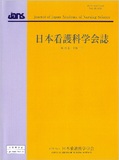Japanese
English
- 販売していません
- Abstract 文献概要
- 参考文献 Reference
要旨
目的:relational coordination理論(RC理論)に基づく訪問看護師と介護支援専門員の連携促進を目的とした研修プログラムを検討した.
方法:本研修プログラムは2回の研修会と1か月間の実践期間で構成し,研修会はRC理論の相互関係性やコミュニケーション向上を目的とした3演習と1講話を2時間半で行った.対象は訪問看護師17名と介護支援専門員16名で,研修前・研修終了1か月後の尺度得点の変化を対応のあるt検定で分析した.
結果:連携段階のlinkageを示す顔の見える関係評価尺度の平均得点は研修前79.1(SD13.1)点,研修終了1か月後83.7(SD12.1)点と上昇した(p = .018).連携段階のfull integrationを示す連携行動評価尺度の平均得点は研修前66.0(SD10.7)点,研修終了1か月後69.4(SD9.5)点と上昇した(p = .023).
結論:本研修プログラムは訪問看護師と介護支援専門員の連携促進に影響を与えた.
Objective: This study investigated a training program aimed at promoting interprofessional collaboration between home visit nurses and care managers based on relational coordination theory.
Methods: The training program involved two training sessions and a month-long practice period. Each training session lasted for 2.5 hours, and consisted of three practical seminars and a lecture designed to improve mutual relationships and communication in accordance with relational coordination theory. Participants comprised 17 home visit nurses and 16 care managers. The promotion of collaboration was analyzed by conducting a paired t-test to compare the scores between pre- and post-program.
Results: The mean score for the face-to-face relationship assessment scale (which indicates the collaboration stage of “linkage”) increased from 79.1 (standard deviation [SD]: 13.1) before the training program to 83.7 (SD: 12.1) after the training program (p = .018). The mean score for the collaborative behavior assessment scale (which indicates the collaboration stage of “full integration”) increased from 66.0 (SD: 10.7) before the training program to 69.4 (SD: 9.5) after the training program (p = .023).
Conclusions: This study showed that the training program was effective in promoting interprofessional collaboration between home visit nurses and care managers.
Copyright © 2020, Japan Academy of Nursing Science. All rights reserved.


